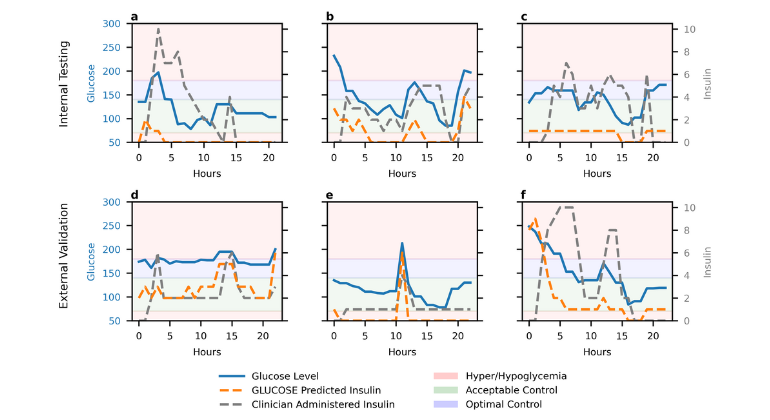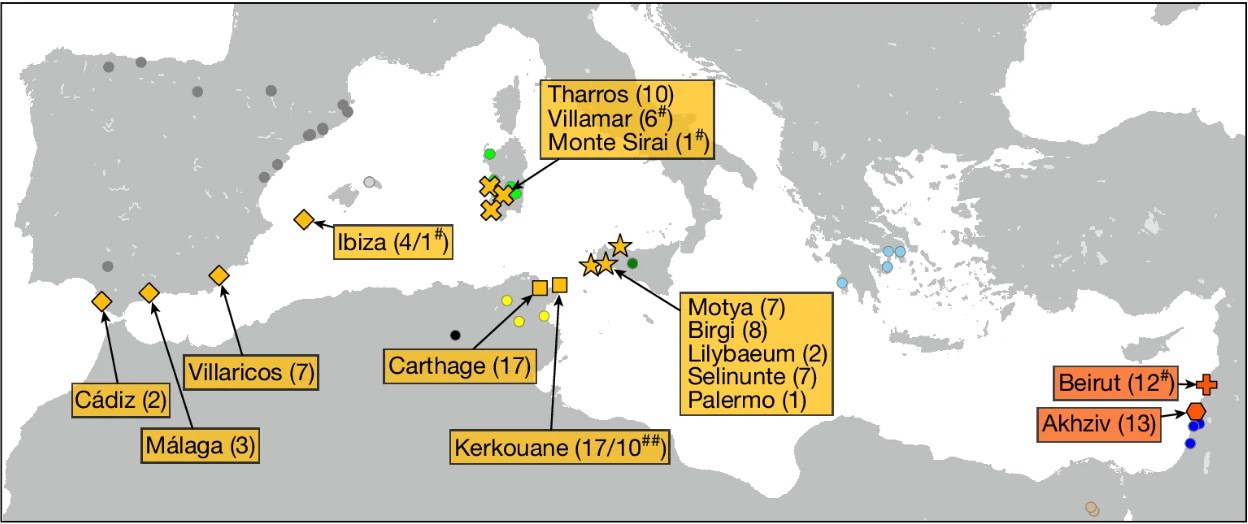2025-05-29 マウントサイナイ医療システム (MSHS)

Representative cases showing how GLUCOSE’s insulin dosing compares to actual clinician decisions in internal (a–c) and external (d–f) testing. Solid lines show glucose levels; dashed lines show insulin doses. Colored bands mark glucose ranges. Credit: Desman, et al., NPJ Digital Medicine
<関連情報>
- https://www.mountsinai.org/about/newsroom/2025/ai-driven-model-supports-safer-and-more-precise-blood-sugar-management-after-heart-surgery
- https://www.nature.com/articles/s41746-025-01709-9
心臓手術後の最適なグルコースコントロールのための分布強化学習モデル A distributional reinforcement learning model for optimal glucose control after cardiac surgery
Jacob M. Desman,Zhang-Wei Hong,Moein Sabounchi,Ashwin S. Sawant,Jaskirat Gill,Ana C. Costa,Gagan Kumar,Rajeev Sharma,Arpeta Gupta,Paul McCarthy,Veena Nandwani,Doug Powell,Alexandra Carideo,Donnie Goodwin,Sanam Ahmed,Umesh Gidwani,Matthew A. Levin,Robin Varghese,Farzan Filsoufi,Robert Freeman,Avniel Shetreat-Klein,Alexander W. Charney,Ira Hofer,Lili Chan,… Ankit Sakhuja
npj Digital Medicine Published:27 May 2025
DOI:https://doi.org/10.1038/s41746-025-01709-9
Abstract
This study introduces Glucose Level Understanding and Control Optimized for Safety and Efficacy (GLUCOSE), a distributional offline reinforcement learning algorithm for optimizing insulin dosing after cardiac surgery. Trained on 5228 patients, tested on 920, and externally validated on 649, GLUCOSE achieved a mean estimated reward of 0.0 [–0.07, 0.06] in internal testing and –0.63 [–0.74, –0.52] in external validation, outperforming clinician returns of –1.29 [–1.37, –1.20] and –1.02 [–1.16, –0.89]. In multi-phase human validation, GLUCOSE first showed a significantly lower mean absolute error (MAE) in insulin dosing, with 0.9 units MAE versus clinicians’ 1.97 units (p < 0.001) in internal testing and 1.90 versus 2.24 units (p = 0.003) in external validation. The second and third phases found GLUCOSE’s performance as comparable to or exceeding that of senior clinicians in MAE, safety, effectiveness, and acceptability. These findings suggest GLUCOSE as a robust tool for improving postoperative glucose management.

